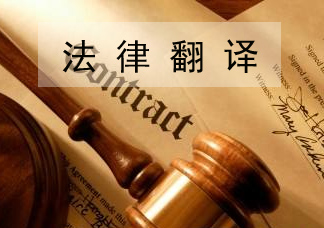
普通翻译原则中所谓“信”就是要求译者忠实于原文,除林纾外,古今中外任何在翻译上有所建树的译者一般都没有背离这个基本原则。所谓忠实于原文就是要求译文有较高程度的准确性, 在传递原文所包含的基本信息方面较少失真。但是,这样要求对于法律文献翻译仍然过于笼统,并且很不全面。法律翻译原则的核心仍然是“信"(Accuracy);但是,“信”也有程度之分,所谓“信” 的程度即为“信度”。在文学,尤其是在诗歌翻译方面,为了追求声韵、节律或修辞效果,或为了迎合读者的文化层次,在翻译的“信度”上可以打一定的折扣,而且无论是在脍炙人口的长篇译作里, 还是在稍纵即逝的每日新闻报道的翻译中,事实上都存在着或多或少这样的折扣。没有这样的折扣,很多这类译文真会变得不堪卒读。但是,在法律翻译上,这样的折扣无论在原则上还是实践中都是不允许的。这是因为法律翻译上任何的“失真”(无论是在句子结构的层面,还是在词汇选择方面)或含糊其词,都可能会造成严重的法律后果,甚至讼事迭起。可以说法律文书本身在写作上的严肃性也决定了法律文书翻译上的特殊性。《法律语言》一书的作者 David Mellinkoff 写道:
... that opposing themselves to‘ the inherent vagueness of language’,lawyers make many attempts at precision of expression.
Henry Weihofen在论述法律文书的写作风格时也阐明了对法律文书写作的精确性(Precision)的要求及其重要意义:
The lawyer must be more precise in his writing than almost anyone else. Most writers can expect their work to be read in good faith, that is, with an honest desire to understand what was meant. But the lawyer must write in constant fear of what we might call the reader in bad faith, the man looking for loopholes in the contract so as to avoid liability for his failure to perform, the disappointed heir who wants the will read in a way that would defeat the testator's intention, the criminal defendant who wants the statute interpreted so as not to cover his act,and all the others who will want to twist the meaning of words for their own ends.
在这里,我们提出对法律文书写作时用词遣句的要求不只是要准确,而是要“更加精确”。在大多数情况下,法律文书是由训练有素的律师、法官和其他司法专家按照一定格式撰写的,在表达思想、叙述事实、说明法理、订立职责、规定奖罚等方面均比其他类型的著作更加严谨,措辞更加确切。一项法律,从构思、起草到公诸于世,其过程之复杂、严格,香港政府法律草拟专员严元浩在有关 其工作的评论中有较详尽的披露:
上一篇:商业广告英语的句法特点
下一篇:商业广吿英语的用词特点

微信公众号搜索“译员”关注我们,每天为您推送翻译理论和技巧,外语学习及翻译招聘信息。